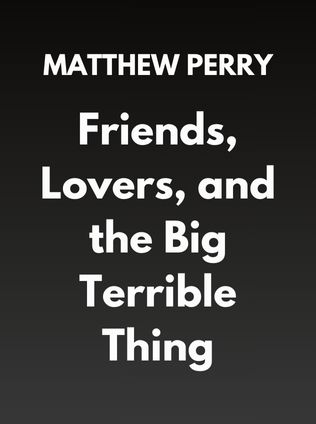
Eight Dates
Essential Conversations for a Lifetime of Love
By John Gottman, Julie Schwartz Gottman, et al.
Published 02/2019
About the Authors
"Eight Dates" is co-authored by four renowned professionals: John Gottman, Julie Schwartz Gottman, Doug Abrams, and Rachel Carlton Abrams. Each brings a unique perspective to the table, combining their expertise in psychology, relationship counseling, integrative medicine, and collaborative writing.
John Gottman, a psychologist, is best known for his extensive research on marital stability and divorce prediction, conducted over four decades. Along with his wife, Julie Schwartz Gottman, also a clinical psychologist, he founded The Gottman Institute, a center dedicated to the study of relationships. Together, they have developed the Gottman Method, a therapeutic approach grounded in research and designed to help couples build lasting relationships. Their work has been instrumental in shifting the focus of relationship counseling from mere crisis intervention to proactive, research-based strategies for relationship success.
Julie Schwartz Gottman, a celebrated clinician and speaker, has co-authored several books with John Gottman, offering practical advice for couples looking to enhance their emotional connection. Her work emphasizes the importance of empathy, trust, and communication in building strong relationships.
Doug Abrams is a writer, editor, and founder of the literary agency Idea Architects. He has co-authored books with some of the world’s most prominent thought leaders, including the Dalai Lama, Desmond Tutu, and Jane Goodall. His expertise in distilling complex ideas into accessible narratives adds a compelling dimension to "Eight Dates."
Rachel Carlton Abrams, a physician specializing in integrative health, contributes her knowledge of holistic well-being and sexuality. Her approach combines conventional medical practices with alternative therapies, focusing on the mind-body connection. Together, the Abrams bring a holistic perspective to the book, emphasizing the importance of physical, emotional, and spiritual health in relationships.
Main Idea
"Eight Dates" posits that the key to a successful, long-lasting relationship lies in continuous learning and curiosity about one’s partner. The authors argue that relationships thrive when both partners are committed to understanding and supporting each other’s growth, both as individuals and as a couple. This commitment is nurtured through intentional conversations, structured as eight meaningful "dates," each designed to explore a specific aspect of the relationship.
The book outlines eight essential conversations that every couple should have to deepen their connection and address common challenges. These conversations cover topics such as trust, conflict, intimacy, money, family, fun, growth, and aspirations. By engaging in these dialogues, couples can strengthen their emotional bond and navigate the inevitable changes and challenges that come with a long-term relationship.
Table of Contents
- Date One: Trust
- Date Two: Conflict
- Date Three: Intimacy
- Date Four: Money
- Date Five: Family
- Date Six: Fun
- Date Seven: Growth
- Date Eight: Aspirations
Date One: Trust
Trust is the foundation of any lasting relationship. The authors define trust as the belief that your partner values you and will be there to support you. This date encourages couples to explore their beliefs about trust and discuss ways to strengthen it in their relationship. Trust is not just about faithfulness; it encompasses honesty, vulnerability, and emotional security.
Building trust requires consistent actions over time. It's about being there for your partner, following through on promises, and being open about your feelings and needs. The authors emphasize that trust is built in the small moments—when you listen with empathy, when you show up for each other, and when you choose to be vulnerable.
"Trust is built in very small moments, which I call 'sliding door' moments. Every moment of everyday interactions with your partner, you have the choice to either turn toward your partner or to turn away from them." – John Gottman
To deepen the discussion on trust, the authors suggest asking your partner the following questions:
- What did you learn about trust growing up?
- How do you define trust now?
- How can we strengthen trust in our relationship?
These questions encourage couples to reflect on their past experiences and how those experiences shape their current relationship. For instance, someone who grew up in an environment where trust was frequently broken may find it challenging to trust others. Understanding this context can help partners support each other more effectively.
The authors also discuss the concept of "emotional bids," which are attempts by one partner to connect with the other. Responding to these bids positively—by showing interest, affection, or support—builds trust and strengthens the emotional bond between partners. On the other hand, ignoring or rejecting these bids can erode trust over time.
"One of the saddest things that can happen to a person is to be ignored or dismissed by the one they love most." – John Gottman
Trust is not something that can be established overnight. It requires a consistent effort to be vulnerable, honest, and supportive. As partners learn to navigate trust issues together, they build a solid foundation for a lasting relationship.
Date Two: Conflict
Conflict is inevitable in any relationship, but how couples handle it can make or break their bond. The authors distinguish between two types of problems: resolvable and perpetual. Resolvable problems are surface-level disagreements, like who should do the dishes. Perpetual problems, on the other hand, are rooted in deeper differences, such as conflicting values or personality traits.
Sign up for FREE and get access to 1,400+ books summaries.
You May Also Like
The Subtle Art of Not Giving a F*ck
A Counterintuitive Approach to Living a Good Life
By Mark MansonHow To Win Friends and Influence People
The All-Time Classic Manual Of People Skills
By Dale CarnegieFreakonomics
A Rogue Economist Explores the Hidden Side of Everything
By Steven D. Levitt and Stephen J. DubnerQuiet: The Power of Introverts
The Power of Introverts in a World That Can't Stop Talking
By Susan Cain



















